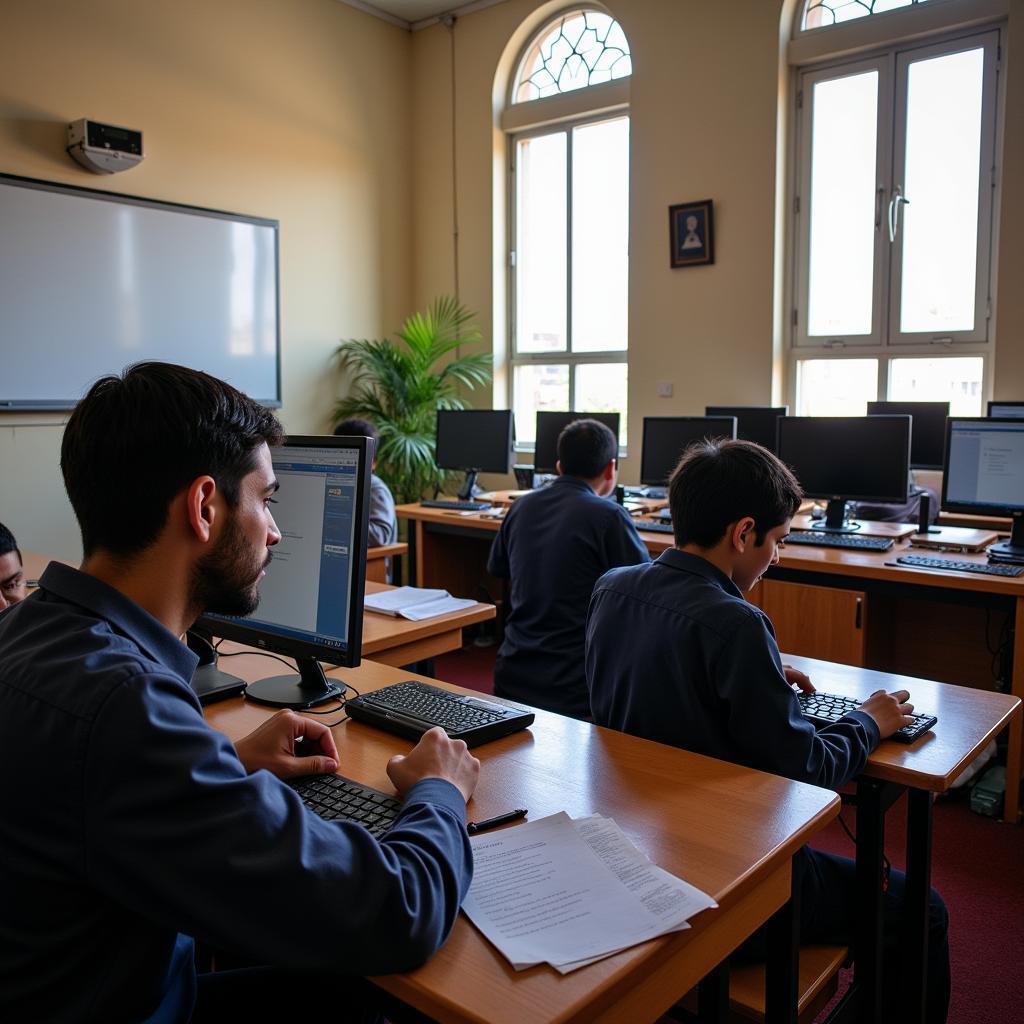Madaris In Pakistan are a significant part of the country’s educational landscape. These Islamic seminaries play a crucial role in providing religious education, particularly to those in underserved communities. This article explores the complex world of madaris in Pakistan, examining their history, evolution, and the challenges they face in the 21st century.
A Deep Dive into Pakistan’s Madaris System
The history of madaris in the Indian subcontinent dates back centuries, evolving alongside the spread of Islam. Initially, these institutions served as centers for advanced Islamic learning, attracting scholars from across the region. Over time, they expanded their scope to provide basic religious education to the wider population. The madrasa system in Pakistan has become deeply ingrained in society, catering to a significant portion of the population’s educational needs. While some madaris receive government funding, many operate independently, relying on donations and community support. This independence has raised concerns about curriculum standardization and oversight.
The Role of Madaris in Pakistani Society
Madaris have traditionally played a crucial role in preserving Islamic traditions and scholarship. They provide an avenue for students to delve into religious texts, learn Arabic, and understand Islamic jurisprudence. For many families, particularly in rural areas, madaris offer the only accessible form of education. However, the modern era presents new challenges. The need to integrate madrasa graduates into the mainstream economy and address concerns about potential radicalization are pressing issues. This requires a collaborative approach between madaris, the government, and civil society.
Addressing the Challenges Facing Madaris
Modernizing the madrasa curriculum is crucial to equip students with the skills needed to thrive in a globalized world. Incorporating subjects like mathematics, science, and English alongside religious studies can broaden their opportunities. This also necessitates enhancing teacher training programs to ensure quality education. Furthermore, fostering dialogue and understanding between different sects within the madrasa system can promote tolerance and unity.
 Modern Madrasa Classroom in Pakistan
Modern Madrasa Classroom in Pakistan
The Future of Madaris: Reform and Integration
Many madaris are actively seeking to reform their curriculum and embrace a more inclusive approach to education. This includes partnering with government and non-governmental organizations to introduce vocational training and modern subjects. This evolution is essential to ensuring that madrasa graduates can contribute meaningfully to society and have access to diverse career paths. The goal is to bridge the gap between religious education and mainstream academics, empowering students with a well-rounded education. The concept of a “Pen Quran” initiative seeks to promote balanced education.
How are Madaris Funded?
Funding for madaris comes from a variety of sources, including private donations, charitable trusts, and in some cases, government funding. The transparency and regulation of these funding streams are important aspects of ongoing reform efforts. Ensuring accountability in financial management is crucial for building public trust and promoting sustainable development within the madrasa system.
religious extremism in pakistan
Conclusion: Madaris in a Changing Pakistan
Madaris in Pakistan continue to play a vital role in education, particularly within underserved communities. Addressing the challenges they face through curriculum reform, teacher training, and integration with mainstream education is crucial for their future and for the future of Pakistan. The evolution of madaris is a complex and ongoing process that requires a collaborative effort from all stakeholders. By investing in the future of madaris, Pakistan can ensure that these institutions continue to provide valuable education while equipping their students with the skills they need to thrive in the 21st century.
FAQ
- What is the primary purpose of madaris in Pakistan?
- How many madaris are estimated to be operating in Pakistan?
- What are some of the challenges faced by madaris in modern times?
- What steps are being taken to modernize madrasa education?
- What is the role of the government in regulating madaris?
- How can the international community support positive changes in the madrasa system?
- What are the long-term goals for the future of madaris in Pakistan?
When you need support, please contact us: Phone Number: +923337849799, Email: news.pakit@gmail.com Or visit us at: Dera Ghazi Khan Rd, Rakhni, Barkhan, Balochistan, Pakistan. We have a 24/7 customer service team.